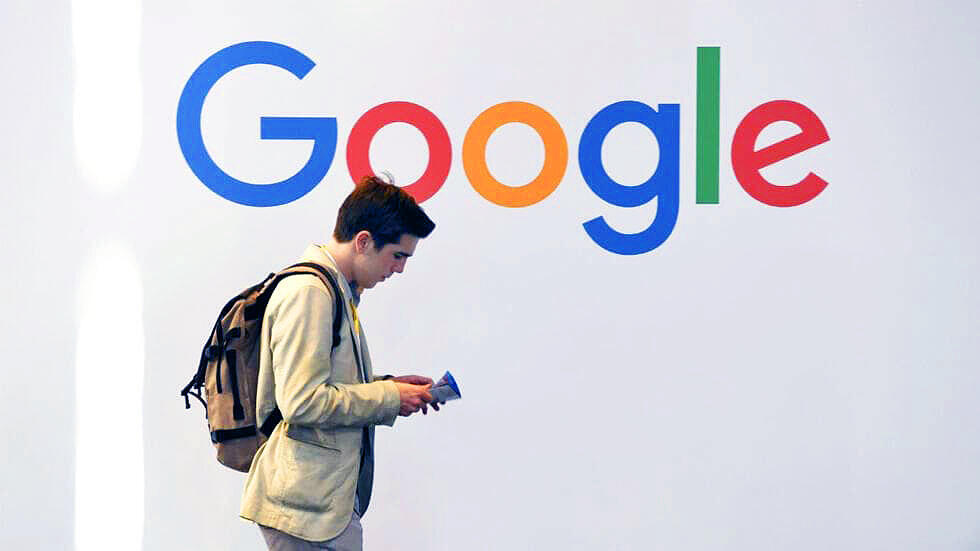
Unhappy new year: 2024 opens with wave of layoffs in tech, and AI could be making it worse
The layoffs of hundreds of employees at Google this week came on the back of the cuts at other companies to start the year, including Amazon, Xerox and Duolingo. Although this is a relatively small wave, it is enough to raise concerns that high-tech will not return to accelerated growth any time soon
Google once again swung its ax as hundreds of employees from the Voice Assistant unit, and hardware team responsible for Pixel, Nest and Fitbit, are being let go. Hundreds of roles in the search giant's central engineering team are also being impacted, the company said.
These layoffs were preceded by a series of similar moves by other companies, including Amazon, Xerox, Duolingo and Unity. Although the scope is significantly smaller than that of the giant layoffs that swept the technology world at the end of 2022 and the beginning of 2023, it is enough to raise concerns that despite the improvement in business performance, the sector will not so quickly return to an accelerated growth track. And all of this is clouded by the growing threat of generative artificial intelligence (GenAI), which has already cost numerous employees their jobs and is reportedly behind a significant restructuring that Google is carrying out in a division that employs 30,000 people.
Since last January, when Google cut 12,000 jobs, the company has carried out several rounds of smaller layoffs, when it fired hundreds of employees from the company's recruiting team in September, 40 employees from the news division in October, and 20 employees from the voice assistant team in November.
The current round of layoffs again includes employees from the voice assistant team, but according to the website 9to5Google it is more focused on restructuring the teams responsible for the development of Pixel, Fitbit and Nest devices. These teams had operated autonomously, functioning as a kind of mini-company within Google with their own design, hardware, software and interface experts. With the reorganization, there will be one team headed by one manager who will lead the development of these three products.
Following this change, the founders of Fitbit (which Google acquired in 2021), James Park and Eric Friedman, as well as other senior Fitbit executives, are expected to leave Google. The move is similar to the decision from December 2022 when Google canceled Waze’s status as an independent division and folded its activities into the Google Maps division.
At the same time, Google is also making significant cuts in the company's AR hardware development team, which was entrusted with the development of an augmented reality device made by Google. According to the company, it remains committed to other AR initiatives, such as integrating AR experiences into existing products or collaborations in the field. However, according to estimates, Google has abandoned plans to develop its own AR product, as Apple did with the Vision Pro that will be launched in the U.S. at the beginning of February, and will instead move to a model of cooperation with other manufacturers.
The latest cuts at Google join, as mentioned, a series of rounds of layoffs to start the year. A day before the layoffs at Google, Amazon announced a round of layoffs that would encompass hundreds of employees in the content divisions and the Twitch live-streaming service. The company is laying off hundreds of workers in the Prime Video streaming service, as well as employees involved in the operation of its production studios, including MGM, whose acquisition it completed in 2023.
Twitch is expected to take a significant hit with the layoffs of 500 employees, more than a third of the service's workforce. "Over the last year, we’ve been working to build a more sustainable business so that Twitch will be here for the long run and throughout the year we have cut costs and made many decisions to be more efficient," wrote Twitch CEO Dan Clancy in an official post. "Unfortunately, despite these efforts, it has become clear that our organization is still meaningfully larger than it needs to be given the size of our business."
Similar to Google, after completing a massive cut of 27,000 jobs at the beginning of 2023, Amazon continued to lay off hundreds of employees throughout the year, in particular in the Alexa smart assistant and music divisions. This, as part of CEO Andy Jassy's moves to significantly cut expenses that skyrocketed during the pandemic boom years, which also included closing several projects that were launched during Jeff Bezos' time as CEO.
Layoffs of a more significant relative scope were registered last week at Unity Software, which announced the firing of 25% of its workforce, approximately 1,800 employees. The company develops infrastructure and tools for video game creators, with more than 2 million game developers using its products. The latest round of layoffs joins the cut of 265 jobs made by the company in November.
Even earlier, on January 3, Xerox, the manufacturer of printers and photocopiers, announced the layoffs of some 3,450 employees, approximately 15% of its workforce, as part of a restructuring process designed to shift the focus of the company's business activities from hardware products to business services.
But the cuts that should be of most concern come from a smaller company: the developer of the language learning app Duolingo. The company announced last week that it would cut 10% of its contractor employees, after the integration of generative artificial intelligence tools eliminated the need for them. "We simply no longer need so many people to do the type of work that some of these contractor workers do. Part of that can be attributed to AI," the company told Bloomberg.
Duolingo CEO Luis von Ahn said in November that the company is leveraging GenAI to produce "new content much faster," such as scripts for programs that help teach languages. The company said that GenAI does not directly replace workers, as many use it as part of their work routine. But the use of the technology does indicate that it can be leveraged to achieve similar outputs with a smaller workforce, resulting in reduced manpower.
And it's possible that what's happening in Duolingo is just the beginning. According to a report by The Information website, Google is preparing for a significant reorganization in its advertising sales division, which employs 30,000 people. This comes against the backdrop of greater reliance on artificial intelligence tools to help customers buy more ads on Google's search engine, YouTube and other services. According to a source in the company, these tools, which automatically offer and create advertisements, are expected to generate tens of billions of dollars in annual revenue for Google. The nature of the reorganization is still unknown, but the company fears that it will include significant cuts in several departments in the division.
Although 2024 did not open with huge cuts of tens of thousands of employees like those made by Meta, Google, Amazon, Microsoft and others last year, the last few weeks have made it clear that the crisis in the technology world has not completely passed and that the road back to the growth path may be longer than many had hoped.
The worst may be behind us, but that doesn't mean there aren't still difficult days ahead: according to data, 18 companies have already laid off 2,945 workers since the beginning of January, and we're not even halfway through the month yet.
2024 may not be as black as 2023, but it is far from being as rosy as 2022. A deeper penetration of GenAI capabilities means that companies will be able to streamline and cut jobs in a variety of fields of activity, and that those employees who will be fired will have difficulty finding an alternative job in their current field of occupation.














